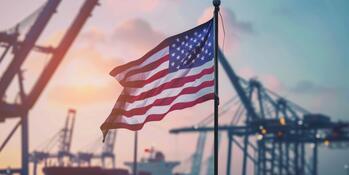We automate and simplify global trade & logistics management. With AI-driven and user-focused software. Keeping your goods in motion so they reach their destination quickly and reliably. And keeping you compliant at all times.
Endress+Hauser optimizes global logistics with a control tower and TMS
More transparency, improved service levels, lower costs: How the family-owned company benefits from the AEB Transportation Management System.
Manage customs like a pro to scale your eCom business
Automate and simplify cross-border clearance to deliver on time, cut costs, and boost customer satisfaction.

AEB: Experts for global trade and logistics
100%
employee-owned and independent
750+
employees
15 in 8
locations in countries
7,000+
companies using our software
Waldo wants to see the world
A whale as a creative hub for children and teenagers – mobile, light, and ready to come to any place. Maybe also to you?
In May, Waldo premiered at AEB get connected. Now it’s waiting to fulfil its true mission. In a cooperation with the NGO ART HELPS, it will host children and teens for creative workshops. Do you have suggestions where Waldo should swim to next?
News and information on customs and global trade
 TariffsvioletJuly 09, 2025
TariffsvioletJuly 09, 2025United States: Trends and developments
Tariff increases by the US dominate the media headlines in 2025. From imposing new tariffs to suspending them. An interim summary of actions, reactions, and "tariff pauses".
 Industry developmentsredJune 13, 2025
Industry developmentsredJune 13, 2025Export compliance crack-down: APAC’s semiconductor industry
Businesses in APAC's semiconductor sector are facing stricter export controls and rising scrutiny. A look at recent developments and how to meet the challenge. AEB Common GroundgradientJune 04, 2025
AEB Common GroundgradientJune 04, 2025Why you will only understand AEB if you have read the Common Ground.
The Common Ground is our user interface. The fact that its latest revision was a very intense process is the best description of what makes us tick.











